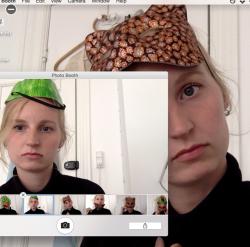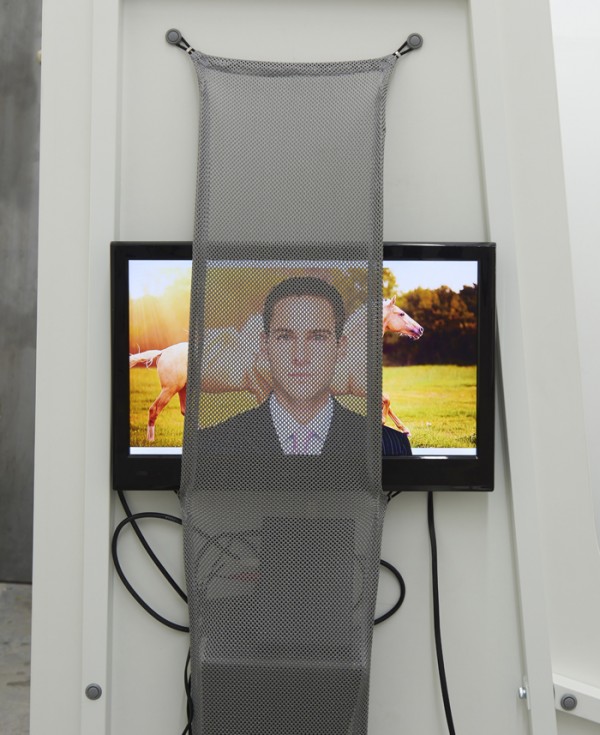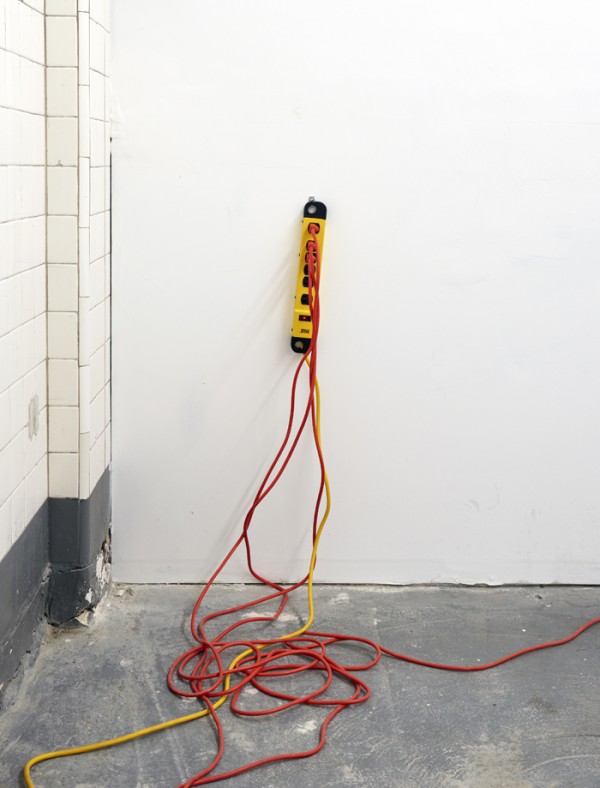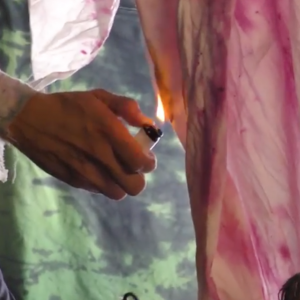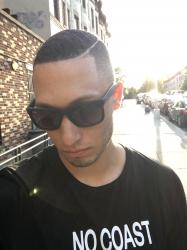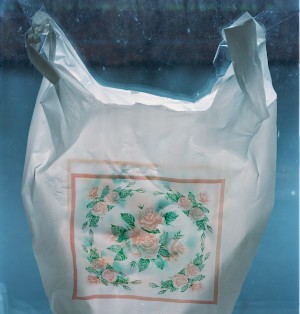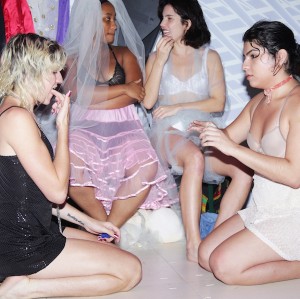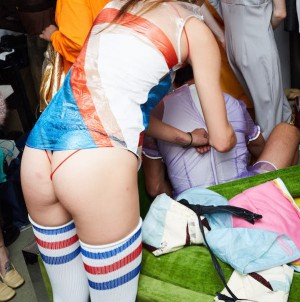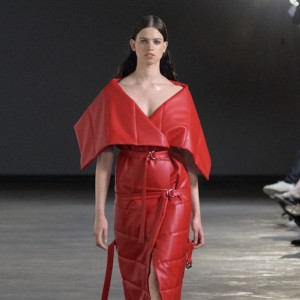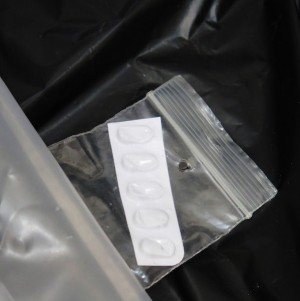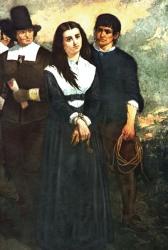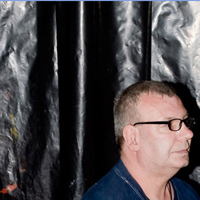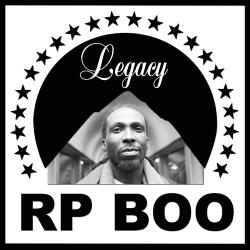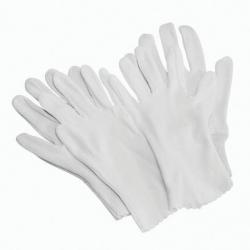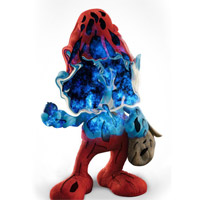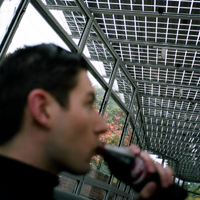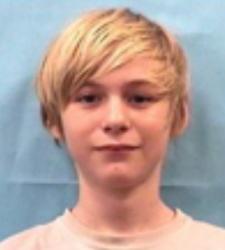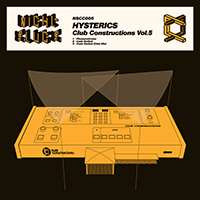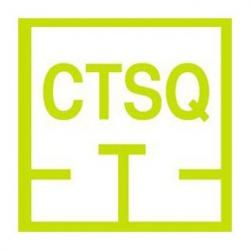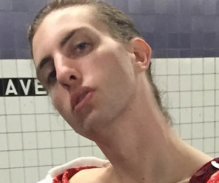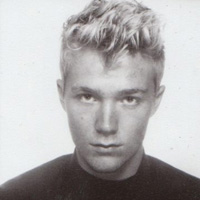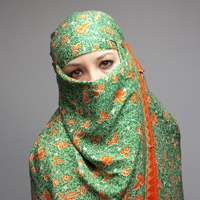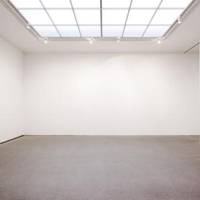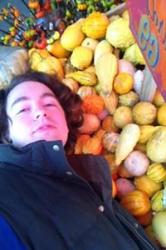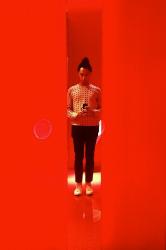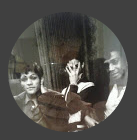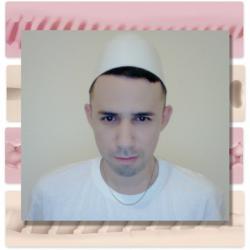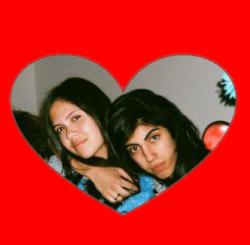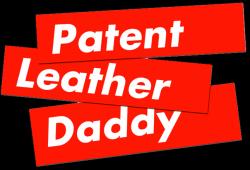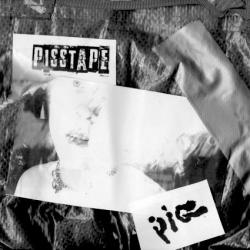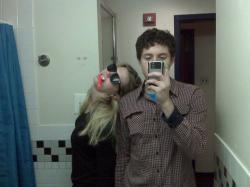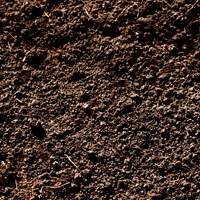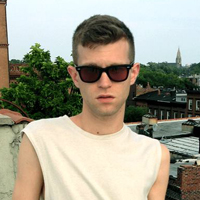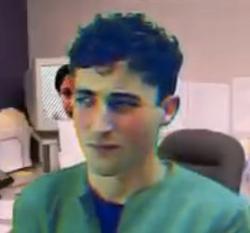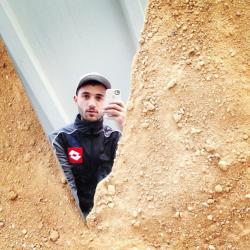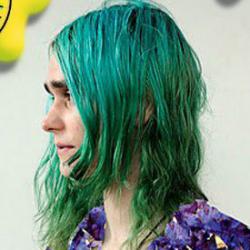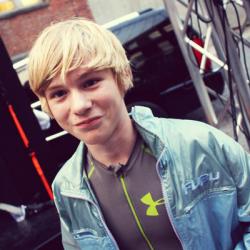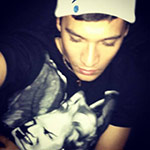Lafayette Anticipation associate curator Anna Colin talks to artist Tyler Coburn about Ergonomic Futures, a speculative project engaged with art, design, science, anthropology and writing. In this interview, Coburn discusses the research, production process and network of collaborators of a multilayered project ultimately concerned with the futures of humankind. Anna Colin: When one comes across your museum seats Ergonomic Futures (2016—) in contemporary art exhibitions—and soon in natural history, fine art, and anthropology museums—they look… [read more »]
I Would Prefer Not to Include My Name | Eva and Franco Mattes
The task of a content moderator is to decide what content on an online platform is permitted to stay and what should be removed. Sometimes the guidelines are clear, e.g. remove all images of Al Qaeda, while other times it’s a question of subjective judgement whether or not the content is inappropriate. Eva and Franco Mattes are the artists behind the exhibition I Would Prefer Not to Include My Name, part of a larger project called Dark Content, in which they interviewed several anonymous content moderators previously employed by companies with clients such as Vimeo (you never work directly for the platform needing your services) over chat and email correspondence. An elusive occupation, the Matteses had to pose as a company interested in hiring content moderators in order to get in contact with any.
On view at Essex Flowers are three works, or episodes, each featuring one of their interviewees. Upon entering the sparse Lower East Side space, you are met with three upright white forms. As you step further in, they gradually unfold and reveal themselves and their surroundings as well-known elements from the typical office environment. The forms are desk tables rotated and the tabletops are now serving as the walls of the gallery, their legs still supporting the weight of the table but either bolted to the wall or lying flat on the floor. Underneath every desk is a chair mat, individually printed with a quote from the corresponding video (e.g. “I would prefer not to include my name”) and an image. Three screens are mounted on the three desk tables,. Each screen shows one content moderator’s story, told by a computer generated voice-over on animated images of stock-image models.
Only glimpses of reality are revealed, both for the content moderators in the form of employee information, and for us, the viewers, who are invited to listen to fragments of a few individuals’ experiences. Through the exhibition we get an inkling sense of what the moderators have to go through (especially in terms of uncomfortable imagery), yet we are also made blatantly aware of the fact that anyone at any moment could be determining what we see and don’t see online. These moderators can be of any gender, age and nation. Most of the time they don’t even know who they are working for. When asked if the moderators themselves thought of their work as a form of censorship, the answer was no. Why? Because their employer was a private company. The political implications in wanting certain images removed are safeguarded by the anonymity of the company. A pressing question remains: Is content moderation there to protect people from harm or to manipulate them and their vision of the world?
From the office setting to the videos, the works are forceful in their anonymous standardized aesthetic. It is a subtle exploration of the multifaceted, problematic phenomenon at hand. We think of social media as a democratic and free platform, when it is actually “curated” by content moderators with no prior training or qualifications except an internet connection. Appropriately Dark Content isn’t confined to the gallery space. The three episodes on view along with others yet not published will be released one by one onto the Dark Web together with instructions on how to access them. By posting Dark Content on the Dark Web, a place notoriously known for porn, violence and drugs, Eva and Franco Mattes encourage us to get acquainted with an alternative to the corporatized, censored online world in order to access the works. The Matteses bypass the censoring of the content moderators and introduce us to the networked reality – and it isn’t what we thought it was.
Curated by Kendra Jayne Patrick
@ Essex Flowers, New York City
Closes December 6, 2015
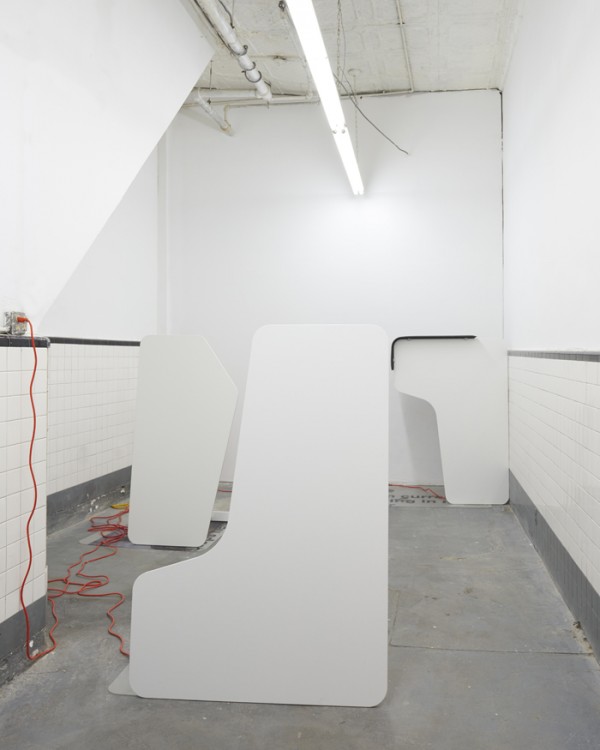
Eva and Franco Mattes, I Would Prefer Not to Include My Name, 2015, Installation view. Photo: Kyle Knodell.
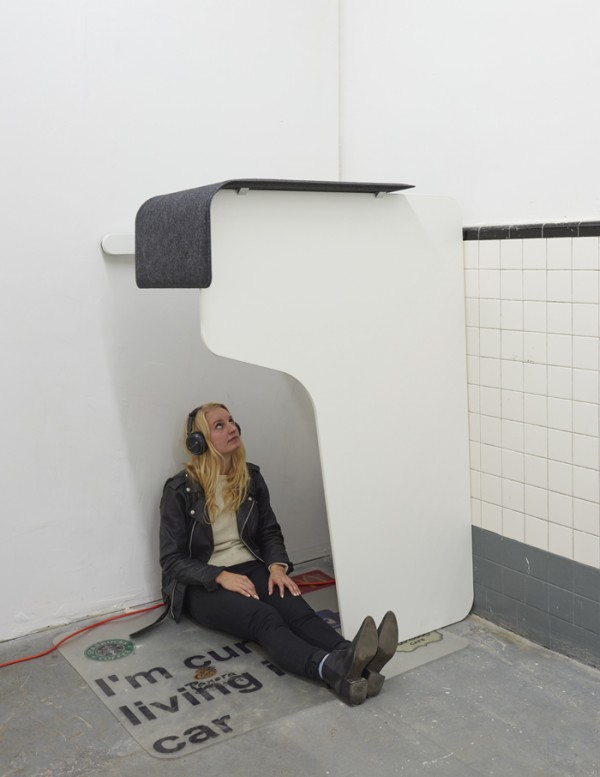
Eva and Franco Mattes, I Would Prefer Not to Include My Name, 2015, Installation view. Photo: Kyle Knodell.
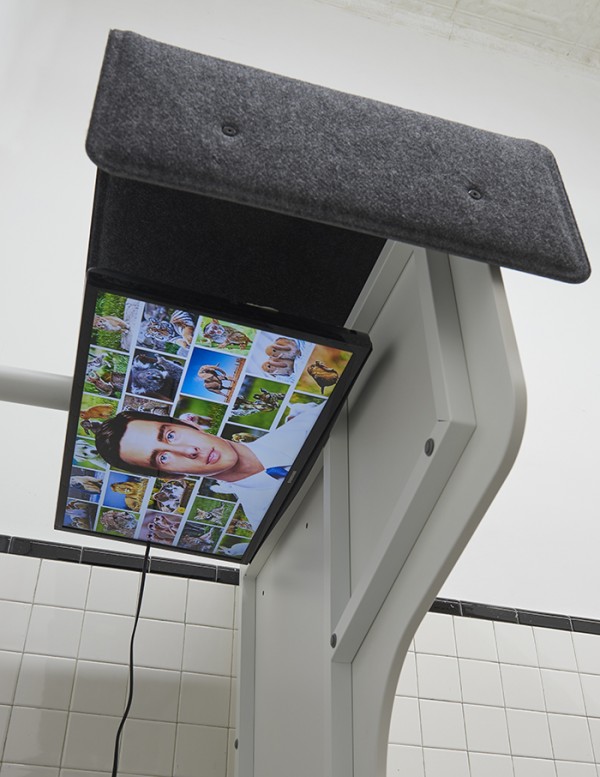
Eva and Franco Mattes, I Would Prefer Not to Include My Name, 2015, Installation view. Photo: Kyle Knodell.
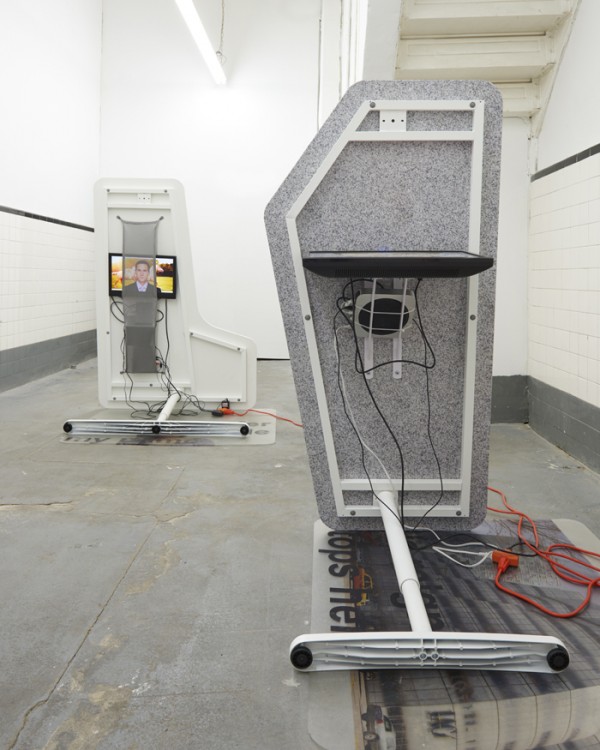
Eva and Franco Mattes, I Would Prefer Not to Include My Name, 2015, Installation view. Photo: Kyle Knodell.
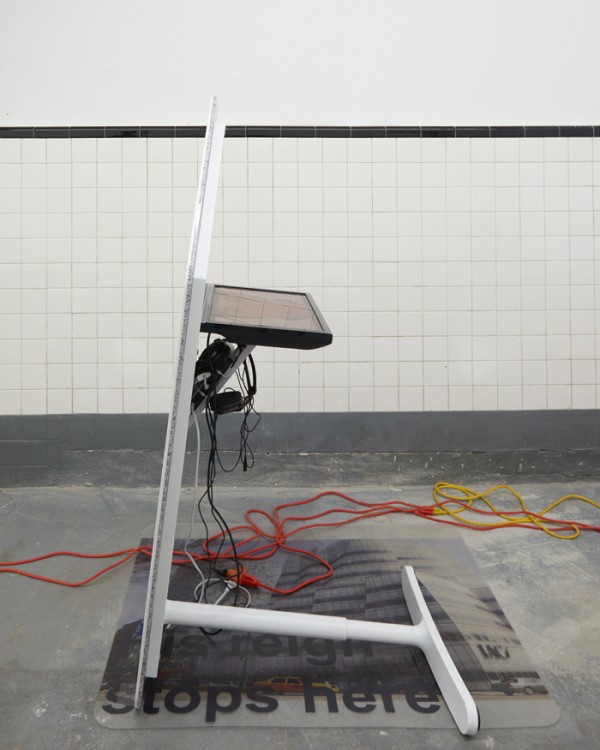
Eva and Franco Mattes, I Would Prefer Not to Include My Name, 2015, Installation view. Photo: Kyle Knodell.
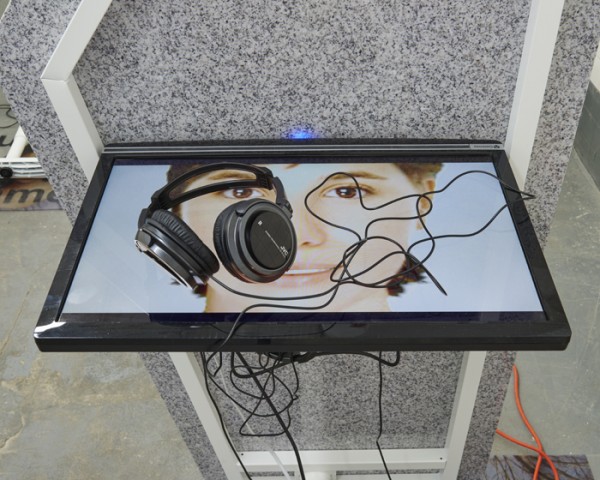
Eva and Franco Mattes, I Would Prefer Not to Include My Name, 2015, Installation view. Photo: Kyle Knodell.
